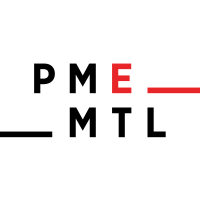Before the health crisis, networking was synonymous with conference luncheons, cocktails and trade shows, all of which disappeared when coronavirus entered our lives. After having been limited to virtual contact for so long, in-person events are now starting to make a comeback. What will networking look like in a post-COVID-19 world? Should we just pick up where we left off, or do we need a brand-new approach? Here are some tips.
In fact, even though certain tendencies will remain unchanged, we will also have to look at how to network differently, according to Lise Cardinal, author of the successful book titled Comment bâtir un réseau de contacts solide, which has been translated into a number of languages. The author and renowned international speaker confirms: “We must adopt new ways of doing business or acquiring useful information. Moving forward, we have to focus on developing our social chemistry.”
The magic of emotional ties
What is social chemistry? It’s the new trend that many experts agree will define the future of networking. The concept was developed by Marissa King, a Professor at Yale University and author of Social Chemistry: Decoding the Patterns of Human Connection. For the past 15 years, she has been studying the evolution of business networks and why they are so important.
Lise Cardinal explains: “It’s not so much the size of the network that matters, but rather the quality of the relationships that we maintain. A well-structured network nurtures ideas and promotes the sharing of knowledge and resources. This requires visibility and communication. Taking this into consideration, instead of taking your contacts to a hockey game, for example, you might opt for a location that promotes dialogue, so that the participants can really get to know each other.”
The focus is more on forging emotional ties by getting to know the individual rather than their business. “It is important to remember that we have to be sold on the person before the service. The pandemic has also shown us the importance of having a network. Those who already had one were less likely to suffer on both a personal and professional level, because they had others to turn to in case of need. These days, mutual benefit and assistance are more important than references,” she continues.
Needs don’t change, but methods do
In the age of social distancing, networking had to be reinvented in the form of virtual meetings. According to Dave Cameron, a Business Development and Networking Consultant and Trainer, these types of interactions won’t necessarily disappear over time.
His prediction: “As is the case with teleworking, it is very likely that networking will continue on in hybrid mode into the future. One advantage of virtual meetings is that there is no travel time lost. They have also enabled us to expand our networks. People outside of metropolitan centres now have access to events that they could not have attended otherwise, and making new contacts overseas has never been easier.”
To ensure that he doesn’t miss anything, Dave Cameron has made a habit of recording his videoconferences. “You can go back and consult the written comments that you may not have had time to see. You can also consult the list of participants, which makes it easier to follow up with your targeted contacts”, he points out.
It is also important to always present yourself in the best light when in virtual mode. Using good quality equipment (camera and microphone), selecting an appropriate background and conveying a professional image are crucial. According to Annie Bienvenue, a Verbal and Nonverbal Communication Coach: “At the beginning of the pandemic, we were more forgiving, because we were all learning at the same time. But now, if you want to promote proper communication, you have to pay close attention to presentation.”
Seeing each other in person
Annie Bienvenue believes that online events should always lead to in-person contact, but this can mean taking one step at a time. “Before meeting in person, you could suggest having a coffee virtually, which can be easier to squeeze into anyone’s agenda. It’s also another way to get to know each other better and determine if there is really mutual interest.”
Preparation is the key to a successful meeting. Dave Cameron explains: “Before I leave, I take the time to make a list of topics that I may want to discuss with the individual or individuals I am going to meet. These may include the movie I saw recently, an event that was of particular interest to me, a specific achievement, etc. It helps get the conversation going. I also set myself a goal, such as getting to know three people or finding someone to collaborate on a project.”
When it comes to networking in hybrid mode, Dave Cameron suggests that we can be more selective in the choice of events that we attend in person. “There are some events that we just can’t miss out on, and we should look at them as an occasion to celebrate!”
_
